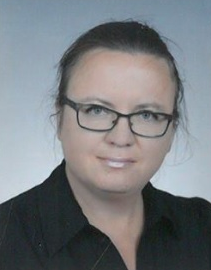
This question seems justified because too many factors would point to such a scenario. Perhaps this was not Agnieszka Holland’s goal – it’s hard for me to judge – but the damage her film does speaks for itself. Let’s look at this picture from a military point of view.
The Polish uniformed services were shown in Agnieszka Holland’s film as a gang of drunken bastards who throw a pregnant woman over a fence, break a thermos of tea so that the migrant drinking it drinks it with a glass and hurts himself, and treat people in a brutal way that insults their personal dignity. From a military point of view, this is a perfect example of preparing the ground for a future Russian invasion. Let us remember that both during the Polish-Bolshevik war of 1920, as well as during World War II and immediately after it, the Russians had a problem with the Polish independence underground, because it was deeply embedded in society. Polish civilians risked their lives to help the partisans because they identified with them and the values they were fighting for. In such conditions, the enemy had not easy task. Therefore, if a film appears in Polish cinemas that destroys the bond between Polish society and the uniformed services, just wait until Vladimir Putin gives it a standing ovation. Like it or not, it is in the vanguard of pushing Russian interests and preparing the ground for a future attack. This really isn’t a joke.
We learned about the power of cinematography in the films of Leni Riefenstahl, Hitler’s propagandist, who perfectly used this field of art to manipulate the masses. If there was an award named after her, the film “The Green Border” would probably be nominated for it.
In Holland’s film, the hatred towards everything Polish shines through. There is a hate towards the Polish uniform, but this is not surprising, since the director’s father wore a Soviet uniform, and we know that “you are like an eggshell when you are young…”. The picture also exudes hatred towards Polish patriotism – the Independence March was called there a “Nazi march”. It is worth noting that this also qualifies as preparing the ground for future Russian aggression, since Russia accuses Nazism before attacking. At this moment, the false message is spreading to the world that Poland is Nazi, so when the Russians attack it under the pretext of denazification, the world should remain silent. And unfortunately this is not an exaggeration or hyperbole.
Attention should be paid to another area that is beneficial for Russians – introducing disinformation, which generates cognitive chaos because not every viewer has the ability to verify fiction and fake news and compare them with facts. The film shows migrants on the Polish-Belarusian border as peaceful and defenseless families with children, and the Border Guard as aggressors, while in reality they are mainly young, aggressive men who brutally attack Polish border guards. What was Agnieszka Holland’s goal by distorting reality in such a way as to turn executioners into victims? This is a valid question as these migrants are a task force. Some of them are random people deceived by the vision of life in Europe, but some – and this has been proven by the Polish services – are ruthless terrorists and people whose task is to destabilize Poland so that it cannot defend itself against a possible invasion.
If we look at the “Green Border” in these categories, it makes our hair stand on end. We can only hope that the Polish nation will react with solidarity with the Polish uniformed services, because they deserve it, risking their lives every day on the border of Poland and Belarus. They are the guarantor of our safety and let’s not let ourselves be told otherwise. We are facing difficult times, and perhaps it is even better that a film like “The Green Border” was made now, because, contrary to the expectations of some, it can unite the Polish nation around the values that the Polish soldier has always professed: “God, Honor, Homeland.”
Anna Wiejak
